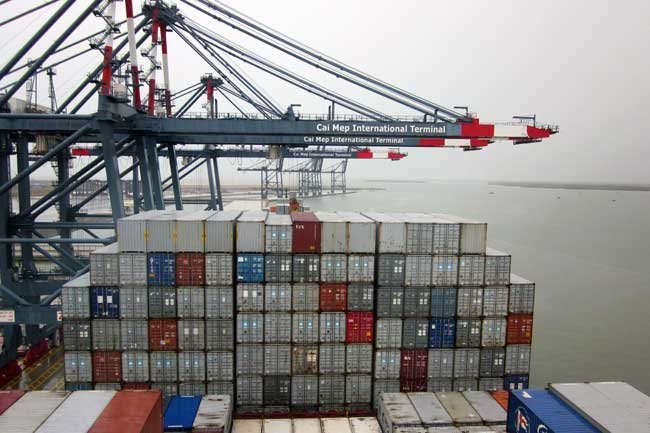HCMC – The Vietnamese logistics industry is among those hit the hardest by Covid-19, as the unpredictability and duration of the pandemic have presented multiple challenges in both the short and long terms, jeopardizing the viability of many businesses, especially small- and medium-sized enterprises.
According to a recent report released by the Logistics Industry Reference Council and the Vietnam Chamber of Commerce and Industry – HCMC branch, preventive measures have led to a sharp decline in the demand for essential commodities in the country. Stagnant production and decreased business have caused a sharp rise in unemployment in the logistics and other sectors.
Logistics activities such as transport have declined due to closed borders, while warehousing services and freight rates have also been seriously affected.
Border posts with China, which were normally busy and overcrowded, have been facing mounting backlogs due to the complicated and time-consuming vehicle and customs clearance processes. This has caused damages to goods and transport difficulties, jeopardizing consignors’ finances and posing new challenges for logistics businesses.
Reports from the Ministry of Transport showed that Vietnam’s logistics businesses have faced several problems while dealing with transport providers. From mid-January to mid-March this year, container shipping companies cut 23% of commercial routes.
In the first quarter of 2020, the number of vessels entering and leaving Vietnamese ports dropped by 15%, while international passenger vessels decreased by 30% compared to the same period last year.
The initial losses reported by Vietnamese airlines due to the suspension of flight routes were estimated to be over VND30 trillion. Inland water transport declined by 10.7% in terms of cargo volume and by 2% in terms of passenger traffic.
Cargo and passenger transport decreased by between 40 and 80% compared to the same period last year. More than 150 passenger trains were terminated, resulting in a VND84 billion loss of revenue, while the revenue from rail cargo transport also decreased by VND6 billion.
Moreover, the risk of mass bankruptcy among logistics businesses and disruptions to supply chains have seriously hurt the Vietnamese labor market. The pressing need to respond to the spread of Covid-19 through social distancing has forced retail stores and trade centers to close, leading to a decline in productivity and a shift in the operating models of distribution systems and logistics supply chains.
To ensure a sustainable and long-term business, a paradigm shift is required in the long run involving industry 4.0 technologies and the diversification of supply chains. An important factor for logistics businesses is to ensure a supply of skilled labor, especially after the pandemic. This will require joint efforts from the Government and businesses.
In the first quarter of 2020, prior to the global spread of Covid-19, warehouses accommodated substantial goods and materials for production and business. In the second quarter, the quantity of goods in warehouses dropped significantly and may continue to worsen in the second half of 2020, so logistics businesses and related parties need to be prepared and take proactive measures to cope with the situation.
Businesses should focus on flexible measures while ensuring the safety of workers. Industry 4.0 technologies should be introduced, taking advantage of lessons learned during the pandemic to devise long-term development and crisis management strategies.









